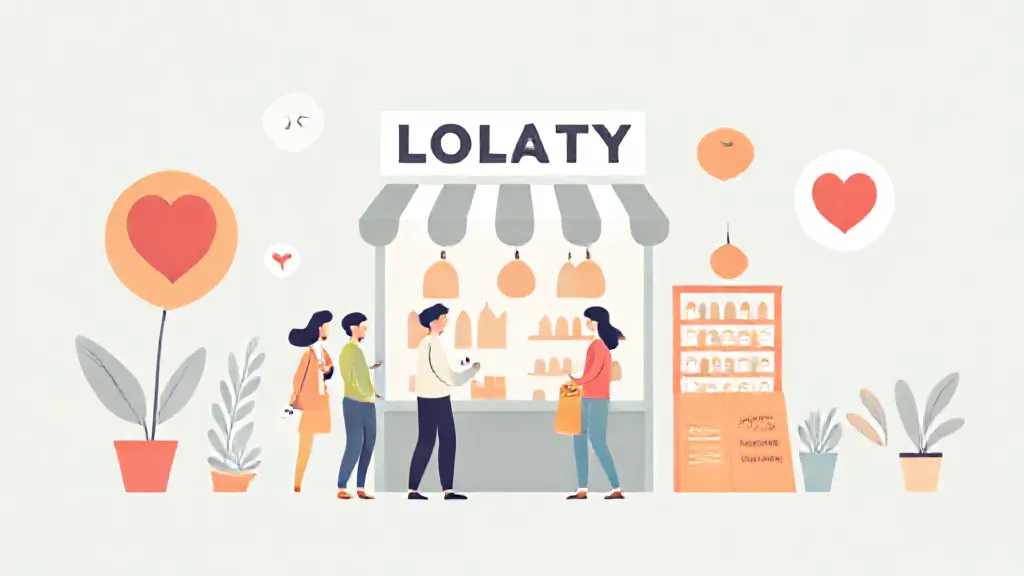In today's competitive marketplace, customer loyalty has become a cornerstone of sustainable business growth. Companies are increasingly recognizing that retaining existing customers is not only more cost-effective than acquiring new ones, but it also leads to increased profitability. This article delves into the reasons why customer loyalty is critical for long-term sales, supported by data, examples, and strategic insights.
The Financial Benefits of Customer Loyalty
Customer loyalty translates directly into financial benefits for businesses. According to research by Bain & Company, increasing customer retention rates by just 5% can lead to a profit increase of 25% to 95%. Loyal customers tend to spend more over time, often making repeat purchases and trying out additional products or services.
For instance, Starbucks has cultivated a loyal customer base through its rewards program, leading to higher average transaction values and consistent revenue streams.
The Cost of Customer Acquisition vs. Retention
Acquiring new customers is significantly more expensive than retaining existing ones.
The Harvard Business Review notes that acquiring a new customer can cost five times more than retaining an existing one. This is particularly true in industries with high competition and low differentiation, where companies must invest heavily in marketing and promotions to attract new clientele. By fostering customer loyalty, businesses can reduce these costs and allocate resources more efficiently.
Building Trust and Brand Advocacy
Loyal customers are not just repeat buyers; they are also brand advocates. When customers trust a brand, they are more likely to recommend it to others, effectively becoming a free marketing channel. This word-of-mouth promotion can be invaluable, as consumers are often more inclined to trust recommendations from friends and family over traditional advertising.
Companies like Apple have leveraged this phenomenon, cultivating a dedicated fan base that eagerly shares their positive experiences.
The Emotional Connection to Brands
Customer loyalty is deeply rooted in emotional connections. Brands that succeed in creating a strong emotional bond with their customers often see higher loyalty rates.
This connection can be fostered through personalized experiences, exceptional customer service, and a consistent brand message. For example, Nike has built a loyal following by aligning its brand with values such as empowerment and social justice, resonating with customers on a personal level.
The Role of Customer Experience
The customer experience plays a pivotal role in cultivating loyalty.
Businesses that prioritize customer satisfaction and create seamless experiences across all touchpoints are more likely to retain customers. Research by PwC indicates that one in three customers will leave a brand they love after just one bad experience. Companies like Zappos have set industry standards for customer service, leading to high levels of customer retention and loyalty.
Data-Driven Insights into Customer Behavior
Utilizing data analytics to understand customer behavior is crucial for fostering loyalty. By analyzing purchasing patterns, preferences, and feedback, businesses can tailor their offerings and communication strategies to meet customer needs effectively. Amazon exemplifies this approach, using data to recommend products and enhance the shopping experience, which in turn boosts customer loyalty and repeat purchases.
Adapting to Changing Customer Expectations
In an ever-evolving market, businesses must stay attuned to changing customer expectations. Loyalty programs, personalized marketing, and responsive customer service are no longer optional; they are essential. Companies that fail to adapt may find their loyal customers seeking alternatives.
For instance, the rise of subscription services like Netflix demonstrates how adapting to consumer preferences can foster loyalty and drive long-term sales.
The Long-Term View of Customer Relationships
Finally, businesses must adopt a long-term perspective when it comes to customer relationships. Viewing customers as mere transactions can lead to short-lived success.
Instead, companies should focus on building long-term relationships that prioritize customer satisfaction and loyalty. This shift in mindset not only enhances customer retention but also creates a more resilient business model capable of weathering market fluctuations.
In conclusion, customer loyalty is not merely a buzzword; it is a critical component of long-term sales success.
By understanding the financial benefits, the importance of emotional connections, and the role of exceptional customer experiences, businesses can cultivate loyalty that drives sustained growth. As the market continues to evolve, prioritizing customer loyalty will be essential for any company aiming for longevity and profitability in their industry.
